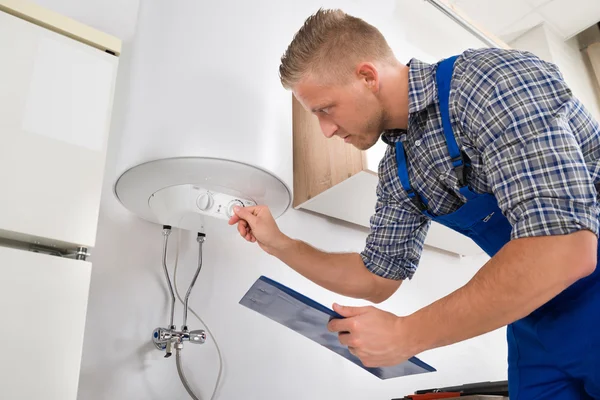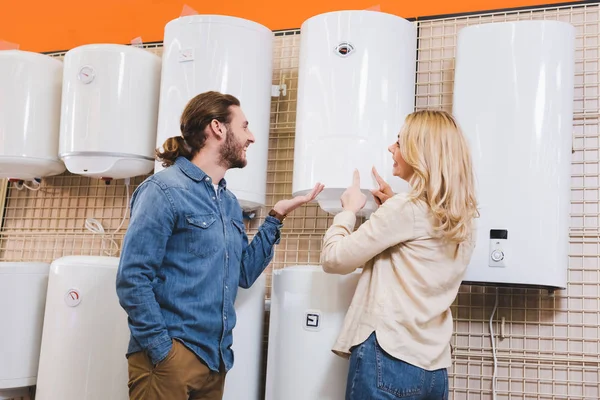Buy Boilers: Top Factors To Consider When Finding The Right Boiler
Choosing the right boiler for your home is a significant decision, impacting both your comfort and energy bills. With numerous options available, understanding what factors to consider can simplify the process. Here’s a comprehensive guide to help you make an informed choice.
Understanding Boiler Types
Combi Boilers
Combi boilers, or combination boilers, are popular in smaller homes. They provide both heating and hot water without the need for a separate water tank. This makes them space-efficient and convenient. However, they may struggle to meet high hot water demands, making them less suitable for larger households.
System Boilers
System boilers are ideal for homes with higher hot water needs. They require a hot water storage cylinder but no cold water tank, making them less bulky than traditional boilers. They can provide a constant supply of hot water to multiple taps simultaneously, making them a great choice for larger families.
Conventional Boilers
Also known as regular or traditional boilers, conventional boilers are suitable for homes with an existing central heating system that includes a hot water cylinder and a cold water tank. They are best for homes with multiple bathrooms and high hot water usage. However, they require more space due to the need for separate tanks.
Key Factors to Consider
- Size and Output: The size and output of a boiler are crucial for ensuring efficiency and comfort. Boiler output is measured in kilowatts (kW). A higher kW rating means more power and the ability to heat larger spaces or supply more hot water. It's essential to choose a boiler with the right output for your home size and heating needs.
- Fuel Type: Boilers can run on various fuels, including gas, oil, and electricity. Gas boilers are the most common in the UK due to their efficiency and lower running costs. Oil boilers are an alternative in areas without gas supply, though they require oil storage. Electric boilers are less common due to higher running costs but are an option for homes without gas or oil access.
- Efficiency Ratings: Modern boilers come with efficiency ratings, often expressed as a percentage or a grade. High-efficiency boilers, typically rated A, can save you money on energy bills and reduce your carbon footprint.

Installation and Maintenance
Professional Installation
Proper installation from Tomlinson Energy is essential for ensuring your boiler operates efficiently and safely. Hiring a qualified, experienced engineer guarantees that the boiler is set up correctly, which minimizes the risk of energy inefficiency and safety hazards. Incorrect installation can lead to increased running costs and potential damage. Professional installation not only ensures compliance with regulations but also provides peace of mind that your system will perform optimally.
Regular Maintenance
Regular maintenance is crucial for keeping your boiler in top condition and operating efficiently. Annual servicing by a qualified engineer helps prevent breakdowns, ensures safe operation, and extends the boiler’s lifespan. Addressing issues early can avoid costly repairs and maintain energy efficiency. Consistent maintenance also supports warranty requirements and improves overall performance.
Smart Technology and Controls
Smart Thermostats
Smart thermostats offer advanced control over your heating system by allowing remote adjustments via a smartphone app. They enable scheduling and temperature optimization, adapting to your lifestyle for greater comfort and energy savings. By learning your preferences, smart thermostats help reduce energy consumption and lower utility bills. Investing in one can significantly enhance your home's heating efficiency.
Zone Heating
Zone heating systems allow you to control the temperature in different areas of your home independently. This targeted approach means you can heat only the rooms you’re using, reducing overall energy consumption. It enhances comfort by providing customized temperatures for each zone, which can lead to lower heating costs. Implementing zone heating can make your home more efficient and versatile.
Environmental Impact

Low Emission Boilers
Low emission boilers are designed to minimize environmental impact by reducing nitrogen oxides (NOx) and carbon dioxide (CO2) emissions. Choosing a low emission model can contribute to a cleaner environment and meet regulatory standards. These boilers enhance energy efficiency while lowering your carbon footprint. Investing in such technology supports sustainability and helps reduce overall pollution.
Renewable Energy Options
Integrating renewable energy options, such as solar thermal panels or heat pumps, with your boiler system can significantly reduce reliance on fossil fuels. These technologies provide supplementary heating and hot water, enhancing overall energy efficiency. Utilizing renewable sources supports environmental sustainability and can lower energy bills. Combining renewable options with your boiler ensures a greener, more cost-effective heating solution.
Cost Considerations
- Initial Purchase Price: Boiler prices vary widely depending on the type, brand, and features. Combi boilers tend to be the most affordable, while system and conventional boilers can be more expensive due to additional components like hot water cylinders.
- Running Costs: Running costs are a critical factor in long-term boiler expenses. High-efficiency boilers with smart controls can significantly reduce energy bills. It’s essential to consider both fuel costs and maintenance when calculating running costs.
- Warranty and Support: A good warranty provides peace of mind and protection against unexpected repair costs. Look for boilers with comprehensive warranties and consider the availability of customer support and service networks.
Making the Final Decision
Assess Your Needs
Assessing your needs involves evaluating your home’s size, the number of bathrooms, and your typical hot water and heating usage. Consider factors like peak demand times and the number of people in your household to determine the appropriate boiler type and size. This assessment helps ensure that the chosen boiler meets your requirements efficiently. Accurate evaluation leads to better performance and cost-effectiveness.
Research and Compare
Research and compare different boiler brands and models to find the best fit for your needs. Look at factors such as efficiency ratings, prices, features, and customer reviews. Utilize online resources and professional recommendations to gather comprehensive information. Comparing options ensures you make an informed decision that balances performance and cost.

